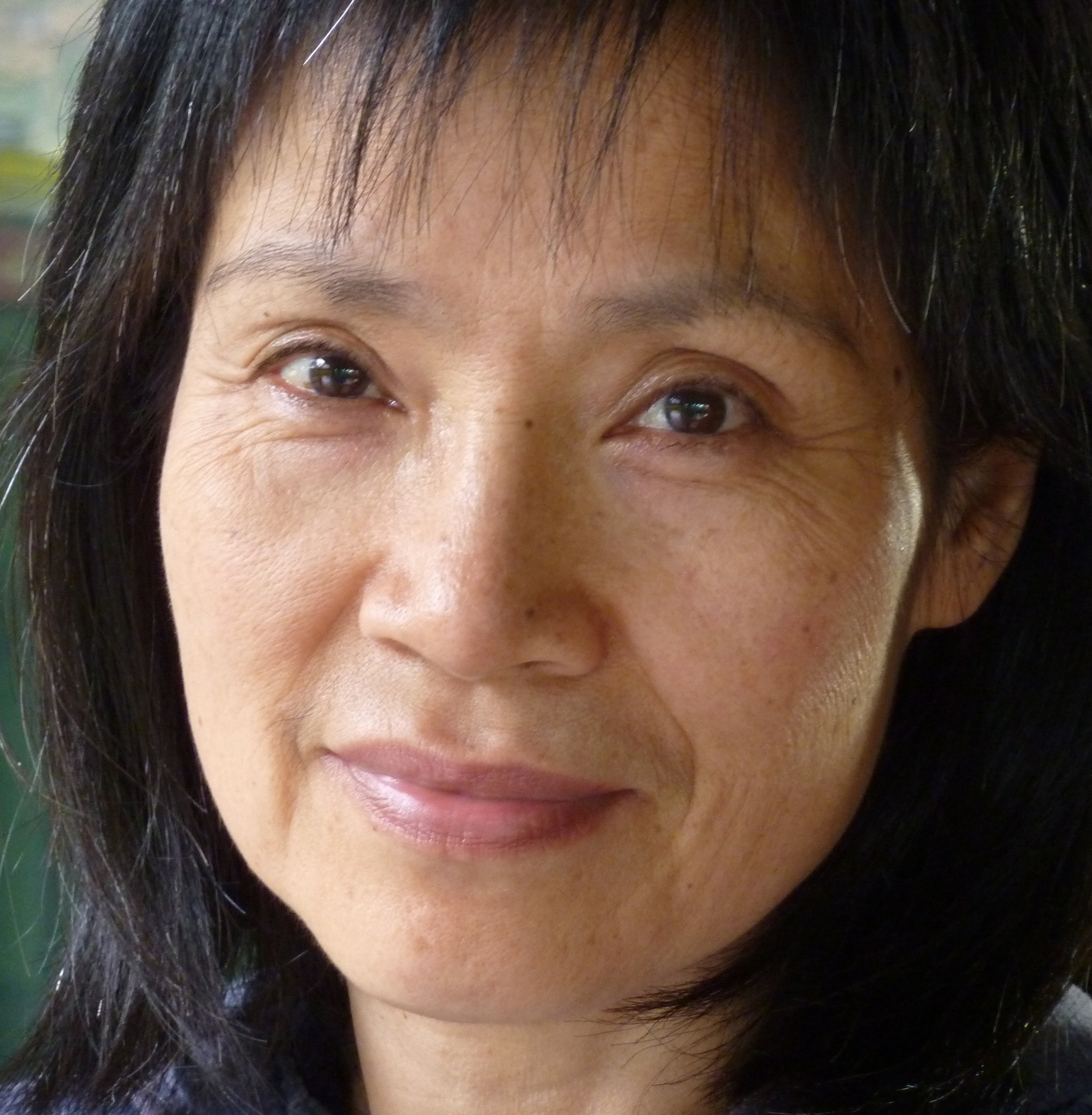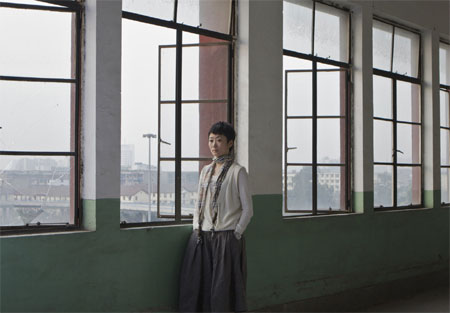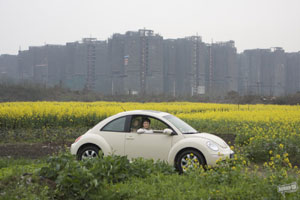Anchee Min is most recently the author of The Cooked Seed.
Listen: Play in new window | Download
Author: Anchee Min
Subjects Discussed: Visiting Houston, Mary McCarthy, being the heroes of our own stories, writing Red Azalea as a way to learn English, owning your own material, repeatedly renting a pornographic tape, sex and loneliness, Love Story in Chinese translation, Western imports after the Cultural Revolution, the Chinese idea of Miss America, Caligula in Madame Mao’s film library, how Chinese restaurants operate during Thanksgiving and Christmas, Anchee Min’s incredible work ethic, living paycheck to paycheck, working multiple jobs, judging the homeless, how ideas of being “down and out” shift from nation to nation, having your daughter hold up sheets of drywall, managing a fixer-upper, deprived children, personal propaganda, Dr. Phil, results-oriented thinking, Americans taking their nation for granted, entitlement, the bare minimum to what people are entitled to, basic needs and health care, parallels between America and the Roman Empire, theoretical humanity, the fragile existence of living in America with a conditional visa, Min’s efforts to read English, the line between hard work and exhaustion, the eight hour day, whether Min ever has downtime, the first time in Min’s life when she felt hope, having the will to make it in America, coughing blood and passing out from overwork, feeling safe for the first time in your life, being swindled and taken advantage of by employers, being overly trustful towards the wrong people, perceptions of fast food, Mister Rogers’ Neighborhood, the influence of television, Edward Snowden, associating music with Chicago buildings, Chinese opera, Michael Jackson, Stevie Wonder’s “I Just Called to Say I Loved You,” working in a record store, Pearl Buck, what’s left of Min’s Chinese roots, Min’s love for Broadway, Phantom of the Opera, why it’s important to write about 95% of China (rather than the 5% elite), Kanye West, learning how to moonwalk like Michael Jackson, envying women with big butts, salsa queens, how memory defines life, memory as a mode of survival, the smartphone generation, acting in propaganda films at the Shanghai Film Studio, pretend tears, the importance of being well-fed and staying humble, Min writing about her first husband, when people forgive unflattering depictions of themselves in books, how people who immigrate to America from China have different perspectives, respecting differing approaches to the American Dream, gratitude for other perspectives, divorce proceedings and child custody, becoming a property owner because there were no job options, landlord-tenant relationships and equitable laws, Min’s views on deadbeats, the excuses of tenants, avoiding generalizations amidst hardships, notions of American childhood, China and the U.S. spying on each other, and how the future of Sino-American relations will play out.
EXCERPT FROM SHOW:
Correspondent: Mary McCarthy once famously remarked, “We all live in suspense, from day to day, from hour to hour.” And this makes us the hero of our own story. So when you wrote both Red Azalea and The Cooked Seed, my question to you is: What did you take to downplay your own heroine status? Is the judgment of whether you are a good person or not left up to the reader? Or is including such moments — such as the way you portray Lauryann, your daughter, or act as a landlord — open enough for the readers to judge for themselves?
Min: I guess I will leave them to judge for themselves. For me, writing Red Azalea was a way to learn English. And I believe that only when I write it and I have other people correct me and I correct it in the copy of the text, I learn English in a solid effective way. And I did not think about anything else. Because I had nothing. Actually, what I wanted was the opposite. I wanted to write like American classmates. But I didn’t have — I did not grow up with hamburgers. So it was amazing. I did not understand what McDonald’s meant. So it was fascinating when they took me to a Chicago Avenue McDonald’s for the first time and put on makeup for the first time. And I think I was just off the boat. Nothing else. It was just survival. Try not to be deported. With this one, The Cooked Seed, I was on the other end. Because I had been making a living as an author for twenty-five years. So I knew what I possessed. It was just how far I wanted to take the material. It’s the issue of honesty. And also bringing my daughter into the picture and my divorce and everything — I felt that as an American writer, I realize I did not own my own material. I had no right to own that. But it’s a conflict. How far did I want to go? It was my daughter who said, “Mom, if you want to leave me anything, I want you to leave me your story. But not the sugarcoated version.”
Correspondent: So here’s a question for you. If you don’t own your own material, do you feel that the more English you know, the less you actually own it? The less private it may very well be in the act of writing? If Red Azalea came from this moment of almost purity, where there was no expectation of audience and there was no expectation that it would be published, how do things change when you are sharing your story? Both from an English standpoint and also from an audience standpoint?
Min: I feel that it’s the guilt I was aware of. I know my material. I know how to write by now. And I knew one thing. That if I don’t tell the story, the second generation, like my daughter — if she decides to write a story about me, she will never get to the real life I live. Because there’s so much. An immigrant mother would not want to leave behind that kind of story. For example, my relationship with a pornography tape. Because that was my only comfort. And that was the most difficult part to review. And I knew that no immigrant woman would have wanted to reveal that. But for me, what I see is the cruelty of the loneliness that impaired me as a person. If you live ten years in storage, like mice, a city rat, and you’re busy with how to make a living, you have no relationship with anyone whatsoever. But you are human. And this material would get lost. And I felt like I had a platform for the voiceless.
Correspondent: Yeah. The bravery of revealing that masturbation sex video. And you also reveal how the video store owner wanted to sell you the tape for $25 and you talked him down to $20. It was the least rented tape in that video store. But it also reminded me of how you conveyed affection and sex in Red Azalea with Yan. How you were both each other’s imaginary boyfriends. And with that, it leads me to ask you. When you write about sex, it’s interesting to me how it comes from this place of loneliness. Almost as if that’s the truest place to write about sex. You don’t really write about sex in a pleasurable way or even a romantic way. And I wanted to ask why that is. Is it possible that the way you write about sex is the truest way on the page? To be honest about the fact that a lot of people get into this because of loneliness, because of need, and things like that.
Min: Actually, you put it very well. Yes, in real life, it is almost dispassionate. It is very cruel and matter of fact. Survival mode. But as literary material, it’s the most romantic, the most sensuous way. Because that’s the moment that you’re dealing with yourself. The innermost. And also you avoid. Even with my relationship in the labor camp, it was almost — you see each other and then you meet each other like ghosts. And nothing was said. It was just under the blankets. It was inside a mosquito net. And she was love with a boy. And I was craving for boys. And we knew the price to date a man was execution and punishment and imprisonment. And we realized that we were in touch with our humanity. But the guilt of it. Yeah, you have to move on as humans. Human animals. So by accident, we discovered the poetry of God.
Correspondent: Yeah. Well, it’s also interesting because I was going to mention, on a less austere note, that you did read Love Story in Chinese translation. And I was wondering if that had any kind of impact upon your notion of romance or love or even sex. How did that notion change when you came to Chicago? I mean, was this one of the things that you had to adjust your own internal feelings for?
Min: It’s quite bizarre. I did not read any Chinese romantic — anything that had that element — before the Cultural Revolution, which means before 1978. Mao died in ’76. And then that was two years later. The Western translations of first Western literature. Like Jane Eyre and Gone with the Wind started to pour into Chinese translations. But before that, the only book about relationship between a man and a woman was this medical book. The title is called From Head to Toe Looking from a Monkey’s Eye. And I was reading it when I was sixteen. And the only sentence in the book that intrigued me — I still remember — is this: “The highest form of a revolution comradeship was intercourse between a man and a woman.” And I thought, “What does it mean?” Highest form of revolution comradeship. And then the bizarre thing was, after I was picked by Madame Mao’s people and taken to be featured in a propaganda film, portraying Madame Mao’s ideal proletarian beauty, I mean, it was very much — the selection was like Miss America or Miss Universe. It’s just that the measurement’s the opposite. We have to have calluses on our shoulders and hands to prove we were real peasants and the weather-beaten face. And carry 300 pounds of manure. But I picked it up and did the screen test, and I had never learned acting before. And there were all these things. Imitating Madame Mao as a cartoonish opera. And Madame Mao decided that the test was awful. We needed to be educated. So we were cultivating in Madame Mao’s private screening room and viewed her favorite movies. Which featured — I remember one was like a battle of Rome sort of thing — like Caligula.
Correspondent: Caligula!
Min: Yeah.
Correspondent: The Bob Guccione film. (laughs)
Min: Yeah. Something like that. But I can’t recall exactly. Because the translator there was Mandarin. So mostly it was images. So for the first time, from that forbidden time, that primitive time, without any men, all of a sudden over that, you see the blue-eyed people turning your insides out. Even before that, we had sections of meetings on making sure we don’t get mentally poisoned by watching this movie. But in coming to America, I all of a sudden realize that I’m not unfamiliar with these brown-eyed, blue-eyed people, who are having orgies. And it’s really weird. And in Chicago, in my storage basement, where I lived alone and with a porno film, and then all these things stringed together. It makes pretty interesting material.
Correspondent: And the name of the video was Sex Education, which also makes it quite interesting in light of this idea of education in China as well. (laughs)
Min: (laughs) Right.
Correspondent: This is the gateway in. (laughs)
Min: Because the first time I was in a porno store, it was — Christmas and Thanksgiving, especially Thanksgiving evening, the restaurants. Nobody goes into Chinese restaurants. So I was let off early. And it’s the longest night. I couldn’t go home. Because if I’d gone back to China, I may not get a visa back. That was the terror. So I want to treat myself with a movie. And I did not know. Inside the movie store, I stepped into the porno section and that title, Sex Education, was the least threatening.
Correspondent: (laughs)
Min: But now I know it’s a cover. Because of that title, nobody borrowed that movie. That’s why the owner, after a few times, he tried to sell it to me.
Correspondent: He was lucky he had you as a customer, I guess. (laughs) You brought up the Chinese restaurant and nobody being in there during Thanksgiving. Much of your early life in America is very much concerned with living the cheapest possible existence, calculating how much money you lose when you take the train to and from work. I mean, there’s one chapter — I don’t want to give it away — in which you go straight to work after something extraordinarily terrible happens. I was reading a story this morning about how 76% of Americans are living paycheck-to-paycheck. This leads me to ask, well, this notion of saving. Obviously family was a big part of it and wanting to make sure that they had money and also the guilt of trying to get them over to America. But how did you develop this very no nonsense approach to using money and saving it and wanting to accrue more of it? It’s almost becoming less American, especially with our economy in the toilet right now.
Min: Well, I guess it’s survival if you are in that situation. First of all, I think it has to do with my sense of gratitude. I mean, it is hard to work five jobs at the same time. But when you own your life, that’s a different perspective. I think that, bizarre as it is, in my life back in China, I was eliminated basically by the society. And in coming here, given a chance, I remember. I still — it just, what I said back to the immigrant officer who tried to deport me and who called me on the spot for not speaking English when entering America, I said, “My feet are on American soil.” And that, I really meant it. And that means a whole world to me. From then on, every time I go, this is what’s ruling me. When I see the homeless, I think I wasn’t being nice. Because the homeless was begging for my quarters. And I said, “You English! You job!” Because I was thinking, if only I had known English, I would have been given job. And I was actually happy with my Taiwanese boss at the restaurant. When I walked faster, she came behind me. She says, “The house is not on fire.” Meaning: Why are you walking so fast? If I sat down, she’d come down, walk on my back, and say, “I did not hire you to be a lazy bone.” But I was happy. Because she let me know I could improve. Which was to find the balance. But if I were in China, I would not know why I was punished.
(Loops for this program provided by Jorge Daniel Ramirez, danke, MaMaGBeats, ShortBusMusic, kingADZ12, djmfl, and R01D.)
The Bat Segundo Show #507: Anchee Min (Download MP3)


 Now how can Joan Chen compete with that? Well, she can’t. But then the film’s more fabricated “characters” tend to have more problematic ironies going on. We’re expected to believe that the still quite attractive Chen is having difficulties finding a man. Her character tells us she’s happy being single while she cries. And her character, Little Flower, was named so because she resembled Joan Chen in the 1979 film of the same name. There is also Tao Zhao as Su Na, born in 1982 and employed as a professional shopper for the rich. Her goal is to acquire as much money as possible so that her parents might live in one of the luxury apartments being erected where the former factory was. Her credentials? She is the “daughter of a worker.” But she’s not just a daughter. She plays one on TV.
Now how can Joan Chen compete with that? Well, she can’t. But then the film’s more fabricated “characters” tend to have more problematic ironies going on. We’re expected to believe that the still quite attractive Chen is having difficulties finding a man. Her character tells us she’s happy being single while she cries. And her character, Little Flower, was named so because she resembled Joan Chen in the 1979 film of the same name. There is also Tao Zhao as Su Na, born in 1982 and employed as a professional shopper for the rich. Her goal is to acquire as much money as possible so that her parents might live in one of the luxury apartments being erected where the former factory was. Her credentials? She is the “daughter of a worker.” But she’s not just a daughter. She plays one on TV.